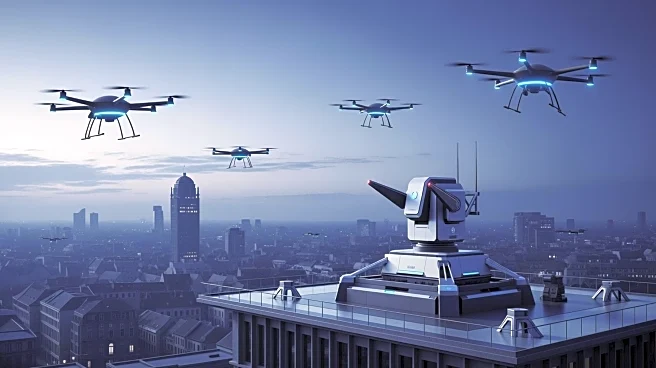What's Happening?
European nations are grappling with how to respond to Russian drone incursions into NATO airspace, leading to public disagreements among alliance members. While some countries advocate for a more aggressive
stance, including shooting down drones, others prefer a cautious approach to avoid escalating tensions. The issue was a focal point at a recent NATO defense ministers' meeting in Brussels, where officials discussed the need for a coordinated response to Russian provocations. The incursions are seen as part of a broader Russian strategy to sow discord among NATO allies.
Why It's Important?
The differing responses to Russian drone incursions highlight the challenges NATO faces in maintaining a unified front against Russian aggression. The situation underscores the need for clear policies and strategies to address such provocations, which could have significant implications for European security. A coordinated response is crucial to deter further incursions and demonstrate NATO's resolve. However, the lack of consensus among member states could weaken the alliance's ability to effectively counter Russian actions, potentially emboldening Moscow to continue its aggressive tactics.
What's Next?
NATO members will need to work towards a consensus on how to handle future incursions, balancing the need for deterrence with the risk of escalation. The development of advanced counter-drone technologies and increased military cooperation among member states could be key components of a unified strategy. Additionally, diplomatic efforts to engage with Russia and address the underlying causes of the tensions will be essential to prevent further incidents. The international community will be closely monitoring NATO's response to gauge the alliance's ability to adapt to evolving security challenges.









